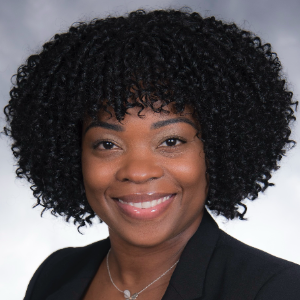Title: Implementing a CAM program on inpatient units to reduce anxiety, stress and improve the patient experience
Abstract:
Objective: This project presents data on the implementation of complementary and alternative modalities (CAM) to help hospital inpatients manage their anxiety and stress in a small community hospital in the United States.
Method: The data being shared was obtained from the completion of a pre & postintervention survey that was completed by a total of 50 participants across two medical/telemetry and mother-baby units. Surveys were completed both before and after receiving CAM therapy. CAM therapy modalities offered included Aroma Therapy, Music Therapy, and Light Massage.
Results: Of the 50 participants, a total of 82% reported that they felt some level of stress/anxiety related to their hospitalization. Of the 82%, who received CAM therapy, 100% of the participants reported that the intervention did help reduce their feelings of stress/anxiety. Additionally, 92% of participants who received CAM therapy shared that the intervention did have a positive impact on their patient experience, while only 8% shared that there was no significant impact since everyone caring for them had been kind.
Conclusions: Complementary and alternative modalities are useful nursing interventions that can be utilized to help reduce patients' stress and anxiety, improve the overall patient experience, and lead to improved patient outcomes. CAM initiatives play an important role in supporting the patients' healing processes, enhancing their overall care experience, and improving clinical outcomes. These findings highlight how crucial it is to adopt a thorough and coordinated patient-centered approach that can lead to more desirable outcomes for hospitalized patients. By offering CAM therapies, nurses can create an environment that allows patients to relax, and reduce stress and anxiety, which is an essential part of promoting the healing process.
Keywords: CAM therapy, anxiety, stress, inpatient, complementary, alternative.
Biography:
Shanita Reynolds, DNP, RN, NE-BC, NPD-BC, CMSRN, Administrator of Nursing Professional Development for the Garnet Health System, has been a nurse for fourteen years. Dr. Reynolds earned her BSN from Herbert H. Lehman College in 2010, and her MSN, as Clinical Nurse Leader from Sacred Heart University in 2015—both with high honors. She completed her Doctor of Nursing Practice at Aspen University in 2023. Her previous roles in nursing include Telemetry Nurse at Vassar Brothers Medical Center, interim Nurse Manager, and Clinical Supervisor at Montefiore Mount Vernon. In 2017, she joined Garnet Health as the Nursing Director of the Progressive Care Unit where she successfully led several performance improvement initiatives and greatly improved employee engagement. She later joined the surgical Services team as Nursing Director for the Post Anesthesia Care Unit--overseeing operations across the campus. Her units earned the highest employee engagement scores two years in a row. In 2022, she was nominated as the 1199 Nurse Leader of Distinction by her staff. Dr. Reynolds is a transformational leader who demonstrates her doctoral skills by helping to standardize the operations of two campuses through her passion and commitment for excellence in patient care, staff engagement, and clinical outcomes. Shanita has been an active member of the organization’s Nursing Shared Governance shared decision-making model, and has served as the Nurse Leader Advisor on the Progressive Care, Ortho/Surgical/Rehab, and Ambulatory/Procedural Councils. Currently, Shanita is the Administrative Nursing Sponsor for the Shared Governance Nursing Congress. In addition, Shanita serves as an Assistant Professor at SUNY Orange where she takes pride in helping to grow successful nurses of the future. When she is not working, Shanita enjoys time with her husband and two children. Shanita is spiritual, fun-loving, generous, and appreciates fine things—she loves to shop! She also loves working out with weights to maintain a healthy body, and believes in alternative methods for self-care. In fact, her passion for these modalities propelled her to make such positive changes for her patients and staff by expanding the caring arts modalities (CAM) program.



